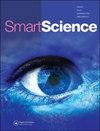A novel Quasi Opposition based controller design for hybrid AGC considering renewable energy and excitation cross coupling effect
IF 1.4
Q2 MULTIDISCIPLINARY SCIENCES
引用次数: 1
Abstract
ABSTRACT The paper addresses the Automatic Generation Control (AGC) of the interconnected two-area power system under deregulated environment. Area 1 includes thermal system, Distributed Generation (DG), and aggregate Electric Vehicle (EV) wheras area 2 contains thermal system, gas system, and aggregate electric vehicle. Nonlinearities such as Generation Rate Constraint (GRC), Governor Dead Band (GDB), Boiler Dynamics (BD), and Communication Delay (CD) are explored in the proposed test system to achieve a realistic approach. For considering cross coupling effect between excitation system and AGC, an exact model has been investigated. A novel cascade controller has been proposed to achieve the desired goal. For optimum values of controller, new novel Quasi Opposition Lion Optimization Algorithm (QOLOA) has been suggested and implemented for the studied system. The sensitivity analysis study was performed to assess the robustness of the proposed controller by varying system parameters. System parameters are varied by ±25%, ±35%, and ±50%, and the result shows the robustness of the controller and algorithm For the proposed controller, Figure of Demerit (FOD) is compared with various algorithms, and the Integral square Error (ISE) is taken as objective function. The optimistic results shows the effectiveness & superiority of proposed AGC in different scenario of deregulation. GRAPHICAL ABSTRACT一种考虑可再生能源和励磁交叉耦合效应的混合AGC准逆控制器设计
摘要:本文研究了放松管制环境下两区互联电力系统的自动发电控制问题。1区包括热力系统、分布式发电(DG)和综合电动汽车(EV), 2区包括热力系统、燃气系统和综合电动汽车。研究了发电速率约束(GRC)、调速器死区(GDB)、锅炉动力学(BD)和通信延迟(CD)等非线性问题,以实现实际的测试方法。考虑励磁系统与AGC之间的交叉耦合效应,建立了精确的模型。为了实现这一目标,提出了一种新型的串级控制器。针对控制器的最优值,提出了一种新的拟对抗狮子优化算法(QOLOA),并对所研究的系统进行了实现。通过灵敏度分析研究来评估所提出的控制器在不同系统参数下的鲁棒性。系统参数变化幅度分别为±25%、±35%和±50%,结果表明控制器和算法具有较好的鲁棒性。对于所提出的控制器,将缺点图(FOD)与各种算法进行比较,并以积分平方误差(ISE)作为目标函数。乐观的结果显示了本文提出的AGC在不同放松管制情景下的有效性和优越性。图形抽象
本文章由计算机程序翻译,如有差异,请以英文原文为准。
求助全文
约1分钟内获得全文
求助全文
来源期刊

Smart Science
Engineering-Engineering (all)
CiteScore
4.70
自引率
4.30%
发文量
21
期刊介绍:
Smart Science (ISSN 2308-0477) is an international, peer-reviewed journal that publishes significant original scientific researches, and reviews and analyses of current research and science policy. We welcome submissions of high quality papers from all fields of science and from any source. Articles of an interdisciplinary nature are particularly welcomed. Smart Science aims to be among the top multidisciplinary journals covering a broad spectrum of smart topics in the fields of materials science, chemistry, physics, engineering, medicine, and biology. Smart Science is currently focusing on the topics of Smart Manufacturing (CPS, IoT and AI) for Industry 4.0, Smart Energy and Smart Chemistry and Materials. Other specific research areas covered by the journal include, but are not limited to: 1. Smart Science in the Future 2. Smart Manufacturing: -Cyber-Physical System (CPS) -Internet of Things (IoT) and Internet of Brain (IoB) -Artificial Intelligence -Smart Computing -Smart Design/Machine -Smart Sensing -Smart Information and Networks 3. Smart Energy and Thermal/Fluidic Science 4. Smart Chemistry and Materials
 求助内容:
求助内容: 应助结果提醒方式:
应助结果提醒方式:


